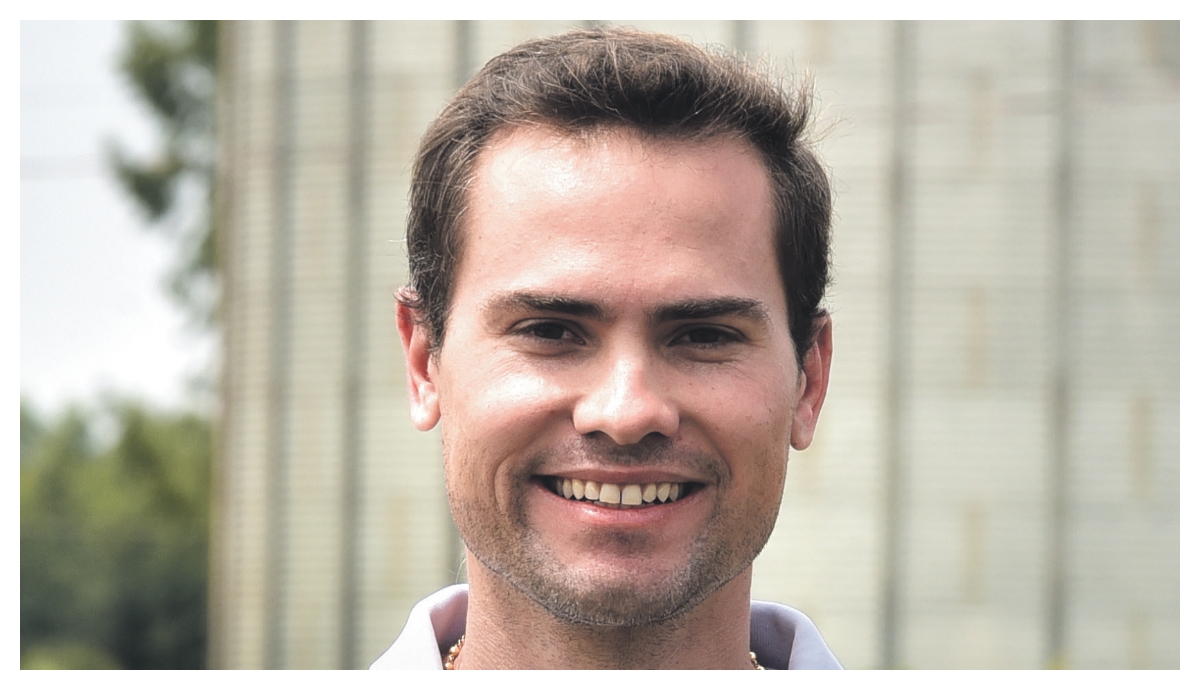 Samuel Locks
Samuel Locks


New Lay of the Land
Sharing the land
Brazil leads the world in the production of key staple crops including soybeans and corn, but those crops depend on a stable climate. And with 90% of Brazil’s agriculture being rainfed, droughts, heatwaves, and other climatic interruptions are a major economic risk.
Samuel Locks, a generational farmer who runs seven farms employing 950 people, has spent his career finding ways for nature and agriculture to share the land while adapting his family farm to a changing climate.
Lessons learned from legacy
“Coming from a traditional family in Agribusiness, I was born and raised on farms,” says Samuel. “My upbringing created a love in me for the land and agricultural production.”
“After graduating in Agronomy and completing an MBA in Strategic Management in Agribusiness, I created the Locks Group in 2006 when I was 24 years old. In our first harvest, we cultivated 1,400 ha and since then, with a lot of dedication, focus, resilience and appreciation of the people who work with us, we entered 2022 with a cultivated area of 115,000 ha of which 25,000 ha are dedicated to cotton cultivation in addition to 3,300 ha of intensive pasture where we slaughter 12,000 animals a year,” he says.
A sustainable lifecycle
Samuel’s stewardship of his land involves maintaining and enhancing the quality of his resources and using them in ways that allow them to be regenerated for the future. He’s using AIenabled precision pesticide spraying technology that can detect and spray weeds amongst crops. This technical innovation enables profitable and sustainable agricultural production by “generating 88% savings in pesticides and water.” He’s also harnessing energy derived from the sun to power 80% of his agro-industrial complex in Sapezal.
Addressing both his input costs and his environmental outputs, Samuel is taking responsibility for the entire lifecycle of his farm. He’s sustainably harnessing cow manure’s usefulness by transforming it into an ecologically friendly, nutrient-rich fertiliser for his soybean and cotton crops while protecting natural resources in the area. Cotton waste is also being converted into a source of fibre, creating a cheaper feed source for livestock from an otherwise unused by-product.
Well-nurtured crops
Since 2014, we’ve been supporting Samuel through our “long-term vision and presence in the field, always bringing new technologies and innovations.” Sustainable inputs such as Kennox, Omite and Flaxton many others are ensuring that his crops are protected and well nurtured throughout their entire lifecycle.

Related Stories
